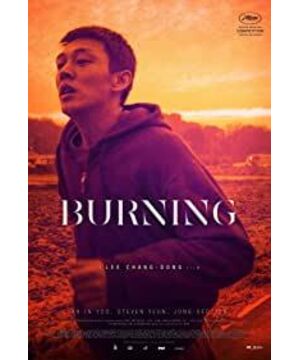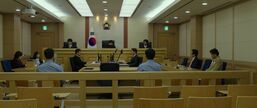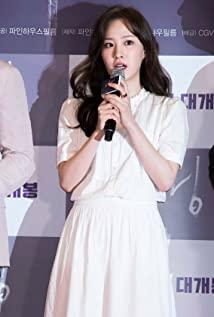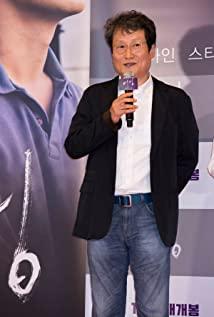Many people compare Bong Joon-ho's "Parasite" with Lee Cang-dong's "Burning". On the surface, these two films are about the collision and shock caused by the fusion of spirits between the poor and the rich. But in reality, they are not comparable at all. "Parasite" is like a well-made mechanical box. You rub it in your hand, and you are full of curiosity and hope to try to unlock the secrets inside, because you know it will not let you down. As for "Burning", it probably gave me the feeling of a rusted iron box, banging because of a flame inside. When you open the box, all you see is the smoke and burn marks after it's burned out. But you can feel the heat from it, and your palms are hot.
"Burning" is adapted from the novel "Burning the Barn" by Haruki Murakami. The original novel has only a few thousand words, and the characters don't even have names. It's just me, he and she, Zhongxiu, Ben and Huimei in the movie. What kind of emotional foreshadowing, with the author's typical existential description - things just happened, what has happened, no matter how absurd it is, it is established and must be accepted. Different from the indistinct and cut-off language in the original work, Li Cangdong, who has always believed in realism, gave the script more feelings and accusations. He was filming a young man, and it is also an emotion shared by many young people in the world— -Anger, in his conception, this anger will be the same as the anger of Zhong Xiu's father in the film, it will accumulate in his heart bit by bit, and then find a node and burst out all at once, destroying everything around him, but Zhongxiu's father suffers from mental illness in the setting, so what about these young people? Are they all sick?
The reality of "Burning the Barn" and the virtual body of "Burning" also show the essential difference between text and image. The text is more restrained and calm, with a clear boundary between the narrator and the bystander, while the image is ambiguous and auditory. The sympathetic and parasympathetic nerves are linked together with vision.
The scene in the film that moved me the most was Hye Mi dancing in the sunset with her upper body topless. At first you feel slightly ashamed of her being naked, but then you recall Hye Mi describing her scene of watching the sunset in the African desert and think of her. I cried and said I wanted to disappear with this sunset. Then you will suddenly understand what Ben said, Emi is a woman who has given up struggling, like a leaf drifting with the tide, owed to loan sharks, no relatives or friends, her only life skills are twisting and dancing, huddled in the mess In a single room, I have sex with an old neighbor I stumbled across on the road. Huimei is actually what she calls "little hunger". Physical hunger does not refer to real hunger, but a lack of love.
In the film, Emi has danced three times. Once, at the beginning of the film, she was hired to dance to attract customers. Although her movements are mechanically rigid, this is her most vibrant appearance, because she moves her arms for the most real thing. - Money, another layer of meaning that money represents is the hope of life. The second dance, in front of Ben's friends, was meant to be social, but by the end of the dance she was completely lost in her own world. The last time she danced was in the setting sun. At this time, Emi's spirit had already been dissipated, leaving only an empty shell. The way she danced with her eyes blinded was really a bit like a dilapidated plastic shed swaying in the wind.
Hui Mei's whole life is a "pantomime", "Don't think that there are oranges here, but forget that there are no oranges here", forget why the rich and handsome Ben chose her as his girlfriend, forget the very dangerous signals that Ben often sends out, forget about it. own situation, and even forget the desire to survive. Huimei is animal, and she follows her heart, only at this moment, not the Ming Dynasty.
Well, compared with Emi, she was originally a "great hunger". She lived a prosperous life, had no worries about food and clothing, had a group of friends, worked and had fun, and had an enviable and perfect material life at a young age. But we all know that his spiritual world is a black hole, and it needs to absorb countless dark matter to obtain a short-term peace. When Ben first met Zhongxiu, he told him that he never cried, and could not feel sadness, because there were no tears as evidence. A person can't feel sadness, so on the other hand, he can't feel happiness either. All he can feel is the bass bass that resounds through his chest and tingles his ribs once every two months, but That's not happiness either. He reminds me of Bell in "American Psycho," who, apart from the momentary excitement he kills, is tormented by anger, agitation, and anxiety the rest of the time. So, when Zhongxiu finally killed him, the actor's performance was very interesting, it was an expression full of longing for death, calm and addicted. I think Ben's heart is begging for death, so he will repeatedly expose his whereabouts and thoughts to Zhongxiu before and after "burning the barn", just like he made pasta to sacrifice to his stomach, slaughtered girls for sacrifice Sacrifice to the emptiness in his heart, and finally he sacrificed himself to death as a sacrifice.
As for the hero Zhongxiu, under the guidance of Ben and Huimi, he finally transitioned from a "little hunger" to a "great hunger". Like Huimei, Zhongxiu also lives in loneliness. Her father is in prison, her mother is missing, she has no regular job, and she lives alone in a house in the countryside. Although there is a phone in the house, there is a radio station facing South Korea outside, and there is a moo in the backyard. The cow that mooed, but Zhong Xiu's spirit was always in silence, so he paid special attention to Hui Mei, because the latter was like that sunbeam that could only light up the room once a day, unable to catch it. It can't be kept, but it can awaken the meaning of life.
The disappearance of Huimei made Zhongxiu finally feel the spiritual hunger. He searched for Huimei obsessively, patrolled the barn, followed Ben, and he began to write after this, also to be able to fill the spiritual emptiness (come to me). Saying that's what writing is about -v-), but none of that was enough to "feed" him, and the only way for him to be satisfied was to kill Ben. In "Parasite", the knife that Dad stabbed President Park shattered the unbreakable gap between the dream that could have been continued and the rich and the poor. Then in "Burning", Zhong Xiu's knife was the one who took revenge for Huimei. There are very few ingredients. At that moment, he became his father, anger at the hopeless future, anger at the woman he likes being played with, anger at the class he would never be able to reach, and anger at the fact that he could have passed " The anger of burning the barn” to obtain spiritual satisfaction, the anger that I cannot empathize with, but at that moment, the anger is ignited.
In fact, the whole film of "Burning" has a psychedelic atmosphere, and Li Cangdong's setting for the ending does not mean to reverse the plot or form suspense. Many people are digging frame by frame, eager to find Huimei's existence. Or proof that it doesn't exist, but that's not what the movie is about. The director's structure of the film's script is all directed inward. What he pays attention to is not the logic of the event, but the behavioral logic of the people involved in the event. To put it more vulgarly, it is human nature. I love the word humanity, even though it's more of a negative thing, we're selfish, we're angry, we've got a desire to destroy, but when we're aware of those human natures and we're confused, it means we're not giving up with it The hope of war, while possessing humanity, we not only have our greatest enemy, but also have the most powerful weapon. The rest is just using the camera lens, words or actions, and constantly. to fight.
View more about Burning reviews










